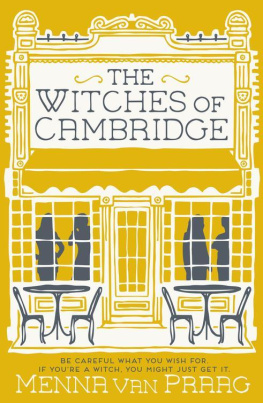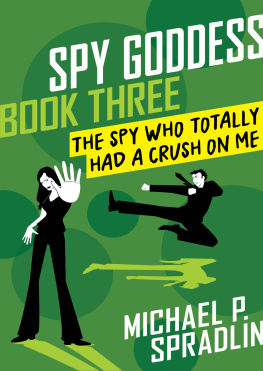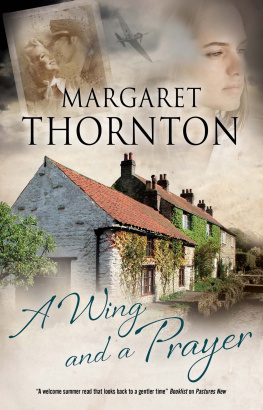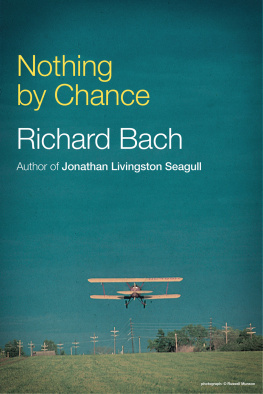Chapter One
T he house has stood at the end of Hope Street for nearly two hundred years. Its larger than all the others, with turrets and chimneys rising high into the sky. The front garden grows wild, the long grasses scattered with cowslips, reaching toward the low-hanging leaves of the willow trees. At night the house looks like a Victorian orphanage housing a hundred despairing souls, but when the clouds part and it is lit by moonlight, the house appears enchanted. As if Rapunzel lives in the tower and a hundred Sleeping Beauties lie in the beds.
The house is built in red brick, the colour of rust, and of Alba Ashbys coat a rare splash of brightness in a wardrobe of black. Alba doesnt know what shes doing, standing on the doorstep, staring at the number eleven nailed to the silver door. Shes lived in Cambridge for four of her nineteen years, but has never been down this street before. And there is no reason for her to be here now, except that she has nowhere else to go.
In the silence Albas thoughts, the ones shes been trying to escape on her midnight walks through town, begin to circle, gathering, ready to whip themselves into a hurricane. How did this happen? How could this happen to me? Shes always been so careful, never inviting any drama or disaster, living like a very sensible seventy-nine-year-old: in a tiny box with a tight lid.
And while most people wouldnt achieve much under such strict limitations, Alba achieved more than most: five A-levels at fifteen, a place at Kings College, Cambridge, to read Modern History, and full PhD funding at eighteen. All this by virtue of two extraordinary traits: her intelligence and her sight. At age four and a half, as well as being able to name and date all the kings and queens of England, Alba started to realise she could see things other people couldnt: the ghost of her grandma at the breakfast table, the paw prints of long-disappeared cats in the grass, the aura of her mother moments before she entered a room. Alba could see smells drifting toward her before she smelt them and sounds vibrating in the air minutes before she heard them. So, because Alba knew things other people didnt, they never noticed she lived her life in a box.
But ever since the worst event of Albas life, shes barely been able to see anything at all, constantly tripping over pavement edges, falling down steps, and walking into walls. She still hasnt cried because to stay in shock feels safer, it keeps a distance between her and the thing shes trying to pretend hasnt happened. The numbness surrounds her, a buffer against the outside world, through which Alba can hardly breathe or see.
Today is the first of May, just after midnight. The moon is full and bright. Vines of wisteria and jasmine twist together across the red bricks, their flowers hanging over the windows and above the door. Their scent puffs through the air and, though shes sorry she cant see their colours, the smell begins to fill Alba with a sense of calm shes never felt before. Her shoulders soften as she reaches up to touch the flowers hanging in wispy bunches above her head. Soon shell feel strong enough to walk again. But then she remembers, she no longer has anywhere to go.
In the silence Alba hears a low hum in the air, almost indistinguishable from the breeze. Still cupping the flowers in her palm, she listens. The hum grows louder and becomes a tune, the notes drifting toward her, and suddenly Alba is captivated. She knows the words to this song:
Sleep, sleep my sweet
Sleep and dream of butterflies
The next line slips away as Alba thinks of the summer her mother sang that song, when she was eight years old, just before her father left. The tune grows louder, seeping through Albas skin, sending shivers down her spine. She knows she should be scared, but shes not; shes captivated.
Alba steps back to look up at the house, at its rows of dark windows, the panes of glass glinting. For a second Alba thinks she sees a face, a flash of white and blonde that disappears so the night is mirrored back at her. She notices a plant with flowers so purple theyre almost black. Its strangeness beckons Alba to come closer, rub its leaves, smell its flowers, slide her fingers into the earth The charms of the house and its garden sink deeper into Alba and, without realising what shes doing, she steps forward and rings the bell.
As Peggy Abbot scurries down the steps, pulling on her patchwork dressing gown, a picture of Alba starts to take shape in her mind: tiny and built like a boy, spiky black hair, intense blue eyes, a mouth that rarely smiles, a weight of sadness and self-doubt heavier than Peggy has ever felt before, but a sense of sight stronger even than her own. Suddenly she knows that this might be a dangerous thing indeed. The midnight glory is in bloom tonight. If Alba looks for too long she might see what makes its petals glow and, worst of all, sense whats buried beneath it.
Wishing she were forty years younger, Peggy hurries along the hallway, slipping on the wood in her woollen socks.
When the door swings open, Alba steps back in shock, staring into the face of the oldest and most beautiful woman shes ever seen.
The moment Alba steps into the house, she knows its different from any home shes ever known. It is, quite clearly, alive. The walls breathe, gently rising and falling beside Alba as she follows the old woman down the hall. The stripped oak floorboards soften under her feet in welcome, the light bulbs and lampshades pull at the ceiling to get a closer look.
As she walks Alba gazes at the walls, weighted down by hundreds of framed photographs: black-and-white pictures of different women, in group shots and singles, wearing trouser suits and top hats, flapper dresses and flat caps, ribbons and pearls. Among the photographs are pictures, pencil drawings and silhouettes, and a few miniature oil paintings of powder-puffed female faces with curls piled high on their heads.
Wait. Alba almost stumbles into the wall. Thats Florence Nightingale.
Oh yes, Peggy says. She stayed with us for a spell before she went off to the Crimea. When my great-, great-, great-aunt Grace Abbot ran the house. A lovely girl by all accounts, Flo, though rather strong willed and a little too fond of sailors Peggy smiles.
Gosh, really? Alba whispers. Thats gosh.
As Peggy ushers her into the kitchen Alba feels a flash of fear. She ought to think twice before entering the homes of complete strangers. Hidden under the folds of Peggys patchwork dressing gown could beat the heart of an evil witch who sees Alba as a modern-day Gretel. But when Alba enters the kitchen shes enveloped in the scent of something magical: cinnamon, ginger, lavender and several spices she cant possibly name, and her fears evaporate. She feels three years old again, transported to a wished-for childhood of baking biscuits with her mother on Sunday afternoons. If Peggy is bewitching her, then the spell is complete.
A few minutes later Alba sits at one end of a long oak table, watching Peggy search for a saucepan. The old woman is bent over, clattering around in the wooden cupboards, muttering swear words as she flings unwanted pans aside. Alba begins to wonder just how old Peggy is. With her white hair and papery skin, slight stoop and frail limbs, she might be anything from seventy to a hundred and seven. But her movements are quick and light and her voice doesnt carry any quiver or depth from age.
Peggy stands, brandishing a saucepan. Do you like hot chocolate, dear? she asks. I dont think tea will do, we need something more fortifying on such an auspicious occasion. Hot chocolate with fresh cream, thats the thing.










